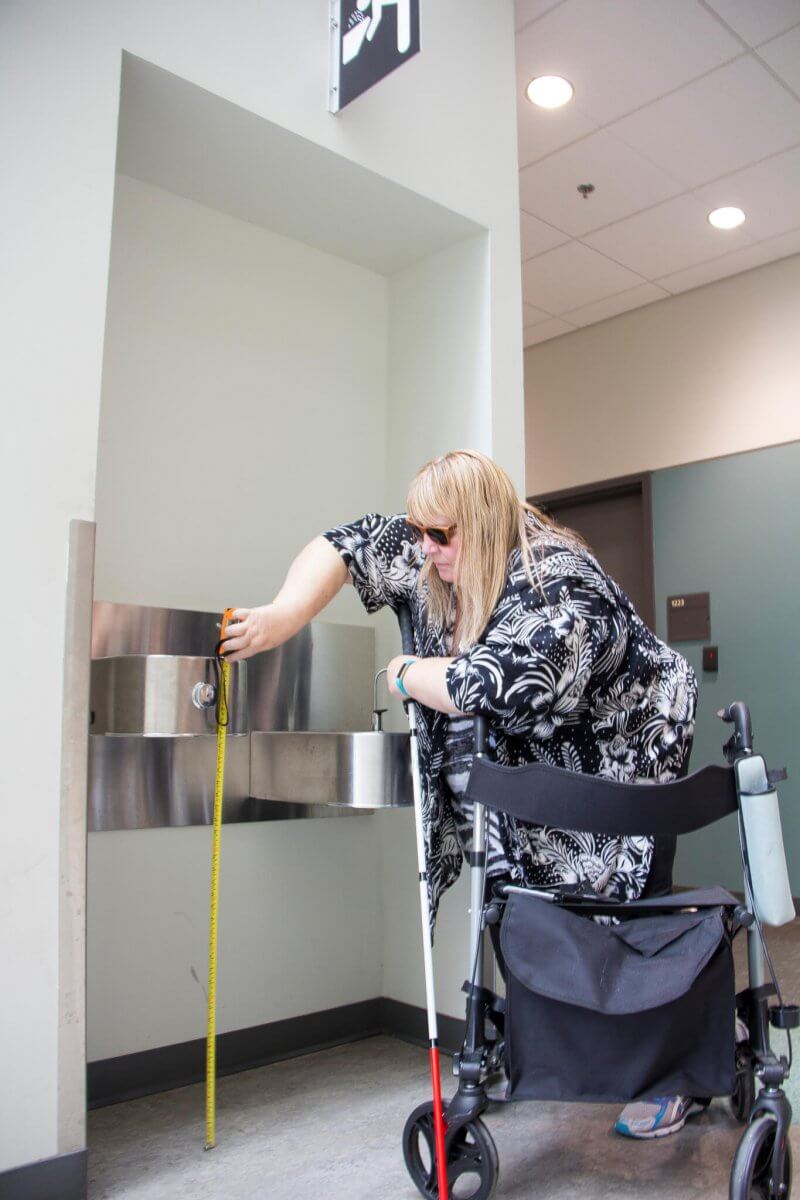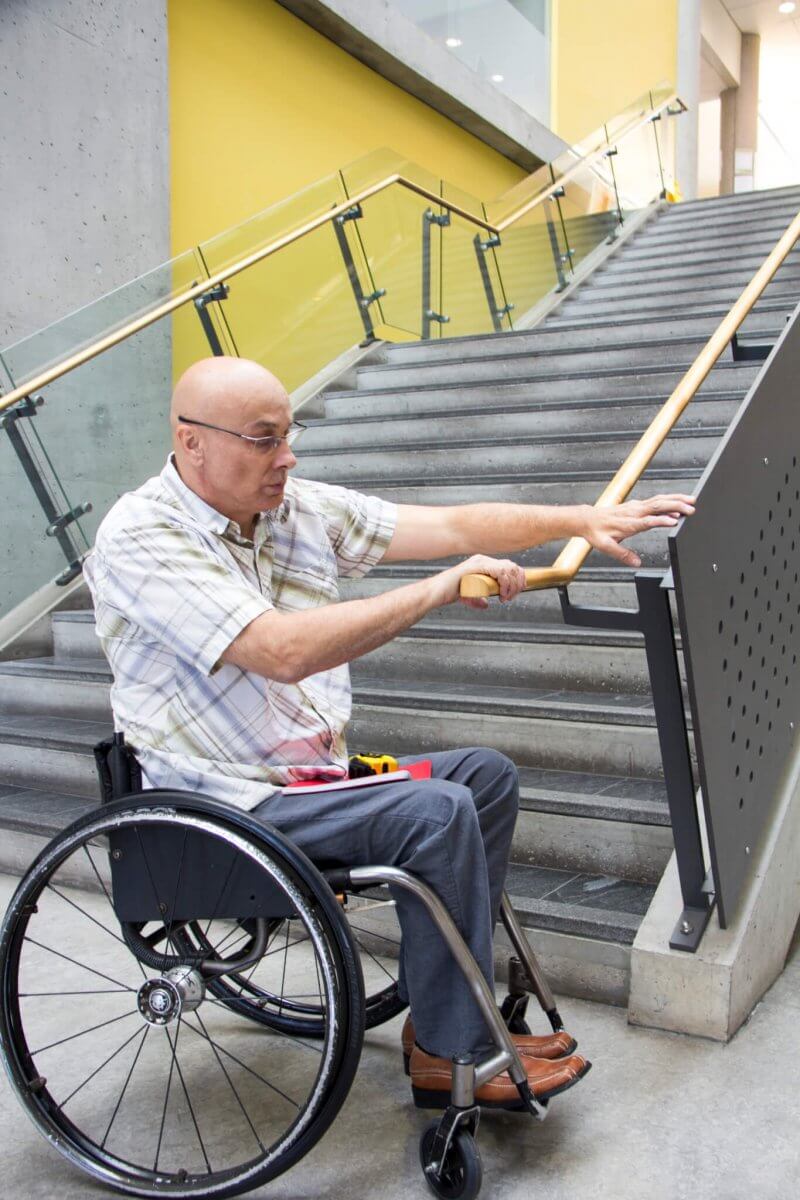Athabasca University (AU) has announced a partnership with the Rick Hansen Foundation (RHF) to offer a first-of-its-kind online accessibility assessor course.
This new course will use immersive technology to train learners to improve the accessibility of buildings and spaces across the country using the Rick Hansen Foundation Accessibility Certification™ (RHFAC).

Similar to the existing course offered at bricks-and-mortar post-secondary institutions across the country, this new online course will provide participants with the fundamental skills and knowledge required to rate a building using RHFAC-a rating system that helps both owners and tenants measure the level of meaningful accessibility of their sites. The online course will provide participants who would not otherwise be able to physically attend the in-person course with a digital training option.
The innovative online course incorporates virtual reality into its curriculum, including:
- A 'Virtual Reality (VR) Accessibility Simulation,' which uses 360-degree footage so participants can experience how a person with a disability navigates buildings. This simulation will be accessible via mobile phones and virtual reality headsets.
- 'Virtual Field Work Interactive,' where participants rate real-world environments to evaluate the meaning access of commercial, institutional, and multi-unit residential buildings. The buildings showcased will be captured using a 3D laser scanning tool to create a virtual floor plan for learners to engage with, accurately scaled to the millimetre.

These virtual reality exercises-all offered in a coached digital environment-will provide participants with a higher degree of immersion and allow participants to check their own work against that of expert professionals.
Rick Hansen, founder of the Rick Hansen Foundation, said he's "thrilled" to partner with AU to deliver an online version of the RHFAC Accessibility Assessor training.
"Athabasca's focus on accessibility and innovative technology advancements will ensure people have access to high-quality learning and are equipped with the standardized, professional skills to rate buildings on their level of meaningful access for people of all abilities," he said.
AU President Dr. Neil Fassina reaffirmed the university's commitment to being a leader in digital accessibility and inclusivity.
"By working with partners like the Rick Hansen Foundation, we share a greater purpose to elevate the social good and remove barriers in our communities for a diverse array of learners," he said. "By presenting digital and distributed educational options in collaboration with the Rick Hansen Foundation, we're helping to transform communities and empowering individuals to realize their true potential."
The university's director of professional and corporate relations, Jessica Scott, likewise said the partnership with the RHF will benefit both organizations.
"Through our partnership, we will provide RHFAC with the digital infrastructure to expand their reach to offer the training across Canada and globally, to help identify physical barriers in public places and spaces, and improve accessibility in our communities," she said.
RHFAC Accessibility Assessor training is currently offered at post-secondary institutions across the country including Vancouver Community College, the Southern Alberta Institute of Technology, George Brown College, Nova Scotia Community College, and Carleton University. The new online course offered through Athabasca University will be available this fall to individuals meeting prerequisites including experience working in the built environment-particularly architects, engineers, urban planners, and design-builders.
To learn more about RHFAC Accessibility Assessor training, visit www.rickhansen.com/training.
Full press release can be found here.